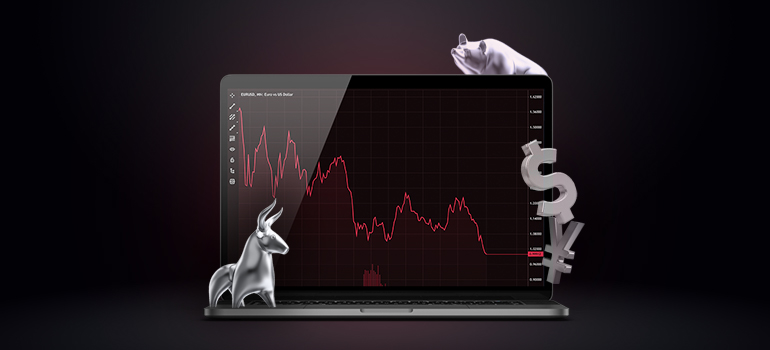Day trading involves buying and selling financial securities within the same day or even multiple times during the day to profit from rapid fluctuations in prices. Day trading can be profitable if it is done correctly. However, it can be risky for beginners if they don’t use the right strategy. In this article, we’ll take a look at 10 day trading tips for beginners.
1. Gain knowledge
A successful trader never stops learning. As well as knowledge of day trading procedures, it’s essential for day traders to keep up-to-date with the latest forex market news and watch what’s happening in the markets. Individuals who start day trading without an understanding of market fundamentals often make losses.
2. Set aside time
Day trading requires your time and attention. You’ll need to commit most of your day, so you can monitor the forex markets and spot opportunities that can arise at any time within a specific trading day. Don’t consider day trading if your time is limited.
3. Use technical analysis
Technical analysis is one of the most effective strategies for making accurate price predictions. This is because you can use historical pricing to gauge how forex prices will move over the next few hours within the trading day. Timing is important as you need to be able to buy when the price is low and sell when the price is high, within the same day. Every second counts and every action must be precise during day trading.
4. Manage risk
As a beginner trader, it is essential to outline a risk management plan. This will help ensure that you only trade with money you can afford to lose. One way to manage risk is by setting a stop-loss for each trade. Whether you’re a beginner or an experienced trader, always make sure to set a stop-loss order. A stop loss is an order which closes out a position by buying or selling an asset when it reaches a certain price.
5. Decide how much capital you want to invest
Assess and commit to the amount you are willing to risk on each trade. Experienced traders risk less than 1-2% of their funds for each trade. Note that one of the principles of successful trading is that you should never risk more than you can afford to lose. If you don’t have enough capital to start trading, open a demo account and practise trading with virtual money.

6. Start small
As a beginner, focus on small trading volumes of your chosen financial asset. Even though you can benefit significantly from a small price change when you trade with a high volume, it is better to start with a smaller volume until you become an experienced trader.
7. Control your emotions
As a trader, you should not allow greed, hope and fear to control your emotions. It can be easy to get emotional and react irrationally to good or bad market news, but this can lead to making the wrong trading decisions. Before you enter a trade, you should always assess whether you are emotionally and psychologically ready to trade in the market. Strategy plays an important role in the market, but psychology plays an even bigger role. Just remember to base your decisions on logic and not emotion.
8. Time your trades
Many orders placed by traders are executed as soon as the markets open in the morning, which contributes to price volatility. Experienced traders can usually recognise profitable patterns when the markets open. But beginners should evaluate the market for the first 15-20 minutes before making any decisions.
9. Be realistic about profits
A strategy doesn’t have to succeed all the time to be profitable. Many successful traders may only make profits on 50% to 60% of their trades. However, they make more profits on their winning trades than their losses on unsuccessful trades.
10. Stick to your plan
It is important to follow your trading plan closely rather than try to run after profits. Don’t let your emotions take control and make you abandon your strategy. Successful traders have rock-solid discipline. They plan every one of their trades, then they trade their plans. Always follow this rule: plan your trade and trade your plan.

Risks of day trading
There are many risks to day trading, and many beginner day traders are unsuccessful. As day trading relies on market volatility to increase the value of an asset, there is always the risk of losing money. Some risks are outlined below:
Be prepared to suffer substantial financial losses
Day traders usually experience serious financial losses in their first months of trading, and many never make a profit.
Day trading is a very stressful full-time job
Watching dozens of ticker quotes and price fluctuations to spot sudden market trends requires great concentration.
Day traders depend heavily on leverage
Day-trading strategies use leverage to make profits. Many day traders not only lose all of their own money, but they end up in debt.
Trade forex with IronFX
If you’re looking to start forex trading or want to practice trading, sign up with a leading broker like IronFX and open a demo account to trade with virtual money before you open a real trading account.
DISCLAIMER: This information is not considered as investment advice or an investment recommendation, but is instead a marketing communication.
